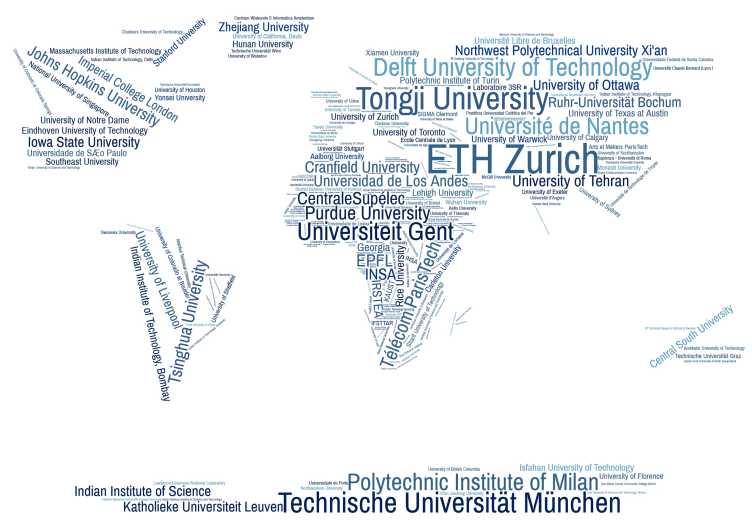UQLab: the software framework for uncertainty quantification

Developing and disseminating high quality uncertainty quantification practices to a wide audience of non-specialists requires the availability of proper software tools. The UQLab software project aims at providing such tools, to make uncertainty quantification available to anybody, in any field of applied science and engineering (external page www.uqlab.com). Since its first public release in 2015, UQLab (external page Marelli and Sudret, 2015) has by now reached more than 5’600 users from more than 94 countries worldwide. Its impact on recent research is remarkable, with more than 750 citations to its official reference (external page Marelli and Sudret, 2015).
In recent years, the development of UQLab has not slowed down, with 1-2 new releases per year that increase its already wide array of tools. In 2019-2020, several entirely new modules, including reliability-based design optimization, Bayesian model calibration and a unique advanced statistical inference toolkit, arguably made UQLab the most advanced general purpose software for uncertainty quantification currently available.
Since 2022, version 2.0 is available, which is fully open source (BSD 3-clause license)! In addition, it comprises several major new features: random fields, stochastic spectral embedding (SSE), sampling-free Bayesian inversion, and offline operation.
UQLab keeps improving and providing more and more tools to its growing user base, as shown external page here with the word cloud of institutions which uses UQLab.

Die Entwicklung und Verbreitung qualitativer Methoden zur Quantifizierung der Ungewissheiten an ein breites Publikum von Nichtfachleuten erfordert die Verfügbarkeit geeigneter Software-tools. Das UQLab-Softwareprojekt zielt darauf ab, solche Werkzeuge bereitzustellen, um die Ungewissheitsquantifizierung für jedermann in jedem Bereich der angewandten Wissenschaft und Technik verfügbar zu machen (external page www.uqlab.com). Seit der Erstveröffentlichung im Jahr 2015 hat UQLab (external page Marelli und Sudret, 2015) mehr als 5'600 Nutzer aus mehr als 94 Ländern weltweit erreicht. Die Auswirkungen auf die jüngste Forschung sind bemerkenswert. Die offizielle Referenz (external page Marelli und Sudret, 2015) hat mehr als 750 Zitierungen.
In den letzten Jahren hat sich die Entwicklung von UQLab nicht verlangsamt. Eine bis zwei neue Versionen pro Jahr erweitern das bereits breite Spektrum an Werkzeugen. In den Jahren 2019-2020 machten mehrere völlig neue Module UQLab zur wohl fortschrittlichsten Allzweck-Software für die Quantifizierung von Ungewissheiten, darunter reliability-based design optimization, Bayesian model calibration und ein einzigartiges Toolkit für statistical inference.
Seit 2022 ist UQLab Version 2.0 als Open-Source-Software erhältlich (BSD 3-clause license)! Diese neue Version enthält ausserdem mehrere neue Features: random fields, stochastic spectral embedding (SSE), sampling-free Bayesian inversion, sowie offline operation.
UQLab verbessert sich ständig und stellt seiner wachsenden Nutzerbasis immer mehr Werkzeuge zur Verfügung. Die Grösse der Nutzerbasis ist klar an der external page Nutzer Word-Cloud ersichtlich.